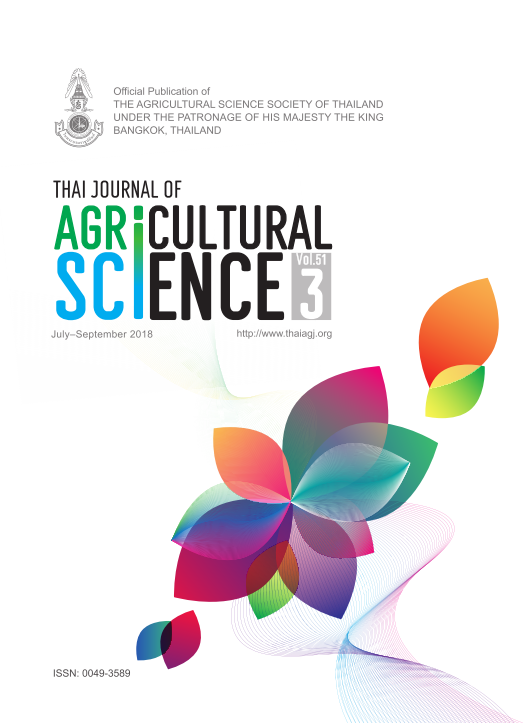Biological Control of Bipolaris oryzae With Bacillus Subtilis and the Development of a Formulation for Rice Seed Treatment
Main Article Content
Abstract
One of the most important diseases that affects rice yield is brown spot disease, which is caused by Bipolaris oryzae. In this study, antagonistic bacteria that inhibit B. oryzae were evaluated, and a formulation for seed treatment was developed. The effect of antagonistic bacteria was assessed on B. oryzae growth inhibition by a dual culture method. Antagonistic bacteria were developed as a formulation and evaluated on B. oryzae growth inhibition in artificial media, infection of treated seeds and brown spot disease on the seedling. The shelf life of antagonistic bacteria in formulations was investigated for 6 months. The most effective antagonistic bacterium, which showed 66.1% growth inhibition, was identified as B. subtilis. In poisoned food method, a formulation of Talc+SCMC1 was amended in Potato Dextrose Agar showed the highest inhibited mycelial growth of B. oryzae at 73.5%. Seeds treated with a Talc+PVP1 formulation during 0, 3 and 6 months of storage showed the highest reduction natural infection of B. oryzae at 67.3, 94.3 and 72.3%, respectively. Seedlings treated with 2 g of a Talc+PVP3 formulation showed the highest reduction in the development of brown spot disease at 92.5% during 3 months of product storage. The initial population of each formulation was 13.5−13.7 log CFU/g at 0 months. The population of B. subtilis decreased with each month of storage and was the lowest at 6.5−6.7 log CFU/g after 6 months of storage.


